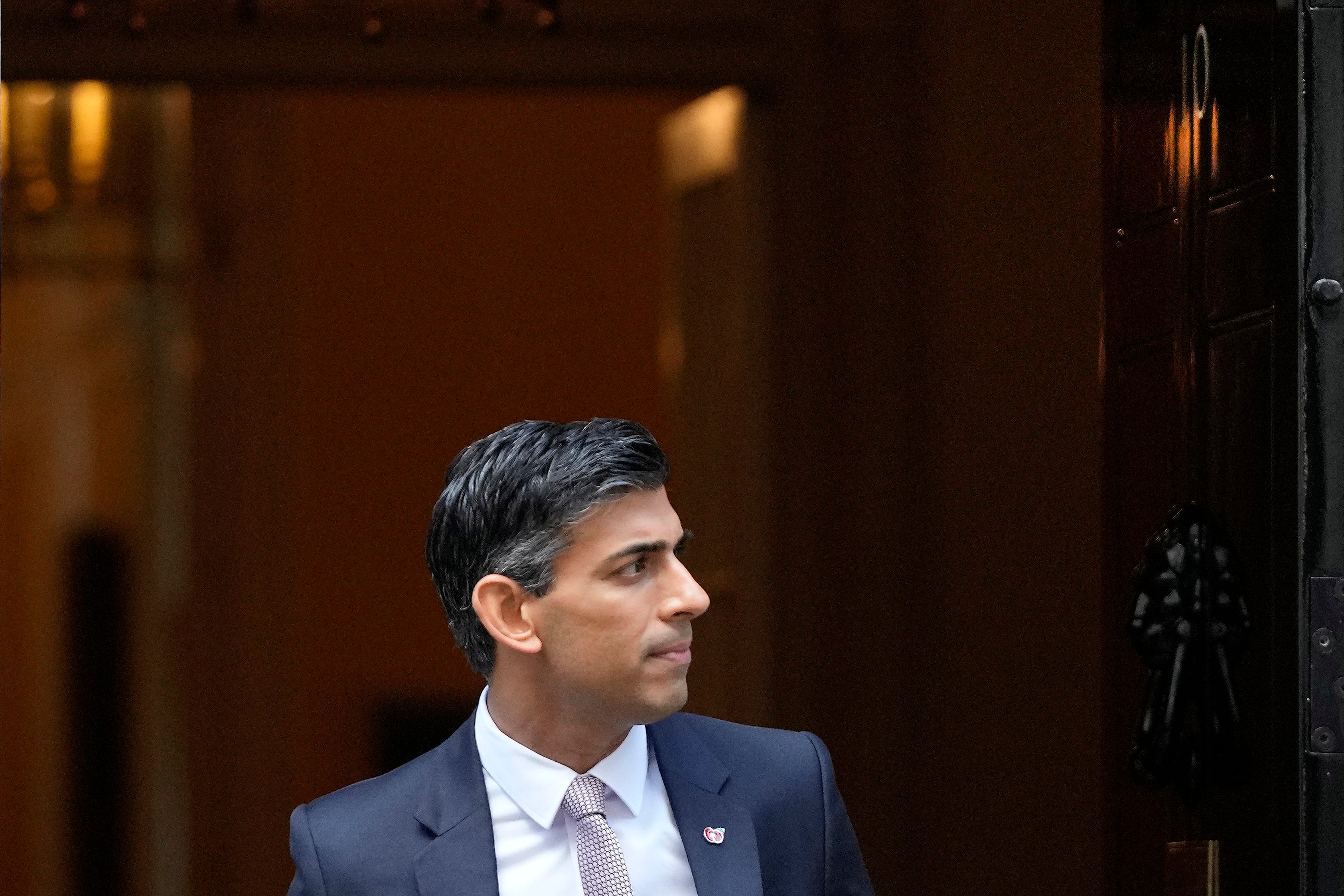Rishi Sunak seeks thawed relations at UK-Ireland summit
Prime Minister Rishi Sunak is aiming to repair frayed relations with Britain’s European Union neighbors and with skeptical leaders in Scotland and Wales

Your support helps us to tell the story
From reproductive rights to climate change to Big Tech, The Independent is on the ground when the story is developing. Whether it's investigating the financials of Elon Musk's pro-Trump PAC or producing our latest documentary, 'The A Word', which shines a light on the American women fighting for reproductive rights, we know how important it is to parse out the facts from the messaging.
At such a critical moment in US history, we need reporters on the ground. Your donation allows us to keep sending journalists to speak to both sides of the story.
The Independent is trusted by Americans across the entire political spectrum. And unlike many other quality news outlets, we choose not to lock Americans out of our reporting and analysis with paywalls. We believe quality journalism should be available to everyone, paid for by those who can afford it.
Your support makes all the difference.Prime Minister Rishi Sunak is aiming to repair frayed relations with Britain’s European Union neighbors — and with highly skeptical leaders in Scotland and Wales — when he attends a summit of leaders from across the U.K. and Ireland on Thursday.
It’s the first time since 2007 that a U.K. leader has gone to the British Irish Council, which brings together government representatives from the U.K., Ireland and semi-autonomous administrations in Scotland, Wales and Northern Ireland. Self-governing British dependencies the Channel Islands and Isle of Man are also represented at the council, which was set up after Northern Ireland’s 1998 peace agreement.
Sunak’s office said he would urge political leaders to “be pragmatic” and “work together in our shared interests.”
“Let’s deliver for all our people across these great islands – and build a future defined not by division, but by unity and hope,” he said.
It’s a marked change of tone – if not yet of substance – from Britain’s Conservative government.
Sunak, who took office last month, wants to improve relations with Ireland and the rest of the EU, soured by Britain’s acrimonious departure from the now 27-nation bloc in 2020. The U.K. prime minister for much of that time was Boris Johnson, a Brexit-booster who often seemed to delight in riling EU officials.
Sunak is also a long-time supporter of Brexit, but has struck a more emollient tone. Britain and the EU have recently restarted talks on resolving a long-simmering dispute over post-Brexit trade rules that has soured U.K.-EU relations and spurred a political crisis in Northern Ireland.
Northern Ireland has been without a fully functioning government since February because of a dispute over post-Brexit customs checks on goods shipped to the region from other parts of the U.K.
The checks are designed to keep an open border between Northern Ireland and neighboring Ireland, an EU member. But they have angered British Unionist politicians, who are refusing to form a power-sharing government with Irish nationalists, because they see the checks as undermining Northern Ireland’s place in the United Kingdom.
That has left Northern Ireland facing an unwanted new election — though the U.K. government on Wednesday postponed calling one for several weeks in the hope a political solution can be found.
In the absence of a government, civil servants will represent Northern Ireland at the council's meeting.
Sunak said he was determined “to see power sharing restored as soon as possible,” but it’s unclear where a breakthrough could come from. Despite the improved tone in talks, Britain and the EU have failed to bridge their differences over the border checks.
At the summit in northwest England, Sunak will meet with Irish Prime Minister Micheál Martin and the leaders of Scotland and Wales, Nicola Sturgeon and Mark Drakeford. That stands in contrast to Sunak's predecessor, Liz Truss, who snubbed Drakeford and Sturgeon, failing even to phone them during her tumultuous 50 days in office.
Both Sturgeon, who is from the pro-independence Scottish National Party, and Labour Party politician Drakeford oppose many of the economic decisions made by the Conservative government in London. More friction is likely after Sunak’s government unveils a package of tax increases and spending cuts on Nov. 17 as it tries to shore up a crumbling economy.
Britain’s economy, already under pressure from Russia’s invasion of Ukraine, the pandemic and the fallout from Brexit, took a nosedive when Truss announced a huge package of unfunded tax cuts on Sept. 23. The move alarmed financial markets, sent the pound to a record low against the dollar and forced the Bank of England to step in to stop the crisis spreading.
Truss resigned less than a month later, leaving successor Sunak to find billions in savings to shore up the nation’s finances.
___
Follow the AP's coverage of U.K. politics and Rishi Sunak at https://apnews.com/hub/rishi-sunak